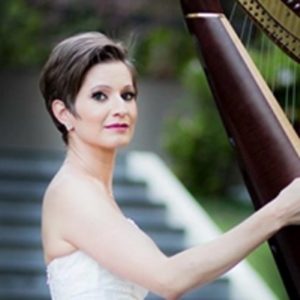I believe in competitions. Competitions in any field of life raise standards. In music, competitions set a high standard of performance. Whether it is a small, local event or a career-launching international contest, music competitions raise the level of a harpist’s playing. I believe so strongly in competitions and their value, that throughout my life I have been part of every aspect of competitions—participant, jury member, audience member, teacher, mentor, prize sponsor, organizer, and founder. I always encourage students to participate in competitions and to have a clearly laid out plan on how to best prepare. Successful preparation for any level of competition requires three elements: clear goals, effective practice, and a good teacher.
Clear goals
I always tell harpists they have to be clear in their goals and be fully committed in their preparation so they can know, no matter the outcome of the competition, they prepared the best they could…
Before entering a competition there needs to be, of course, a certain level of mastery of the instrument. This is usually determined by the age and repertoire requirements of a given competition. As a side note, nowadays there are so many competitions around the world, easily accessible through online formats without the need to travel, that most harpists at any age and level can have a chance to compete.
Once you identify a good competition for you, the next step is to establish clear goals. Some of those goals may include preparing to the best of your ability, learning new repertoire, learning more challenging or unusual repertoire, meeting a deadline, looking forward to a specific event, winning a prize, or simply taking pride in your participation in the event.
I started competing at a young age, and I enjoyed every aspect of the preparation. I guess I had a competitive spirit, but mostly with myself. For me, competitions were challenges to learn new repertoire, performance and career launching opportunities, and chances to earn some money through prizes, so these were some of my goals. I always tell harpists they have to be clear in their goals and be fully committed in their preparation so they can know, no matter the outcome of the competition, they prepared the best they could, which takes me to the next element: effective practice.
Effective practice
There are many buzzwords that are used in a competition preparation: determination, perseverance, confidence, discipline, resilience, grit (a combination of passion and perseverance), and mental toughness. A successful competitor needs to possess all of these elements, and competition preparation fosters their growth. It is like a circle, they all feed each other.
To me, organization is the best element to have in a practice session. If you want to improve, polish, and achieve higher standards, you need to be organized in how you practice and manage your time. Organization of time is a key element in staying focused, as harpists have to learn a great amount of repertoire and learn how to play at their best under pressure in competitions. In many larger competitions, there are multiple stages of required repertoire, and you need an organized plan in place to manage the different stages of practice for each piece—learning, polishing, memorizing, and performing.
Practice for a competition isn’t limited to the physical preparation at the instrument, though. It also involves mental and emotional preparation. And here is where the next part comes in: the importance of a good teacher.
Good teacher
The role of a teacher in the preparation of a competition is crucial. A good teacher is an invaluable source of information in the preparation of repertoire, and also a coach of sorts. A good teacher guides you through the physical, emotional, and psychological preparation. The saying “you don’t know what you don’t know” is true, especially for first-time competitors. A good teacher can offer wisdom from their own competition experiences.
If you are wondering whether you should enter a competition, I think the answer is yes. Define your goals. Give your best in preparation. Use your teacher’s guidance. You’ll push your playing to a new level. You’ll make some mistakes. In the end, you will learn from all of it. I participated in a lot of competitions (and I mean a lot), and I won many prizes and did not win many others. As I look back on my competition years, I fondly remember the thrill of preparing. And as I reflect on my role now, helping harpists prepare for competitions, I still get that same thrill from their preparation and their sense of accomplishment. •







